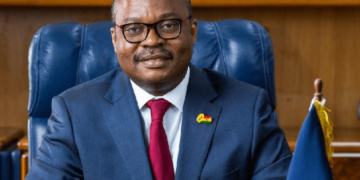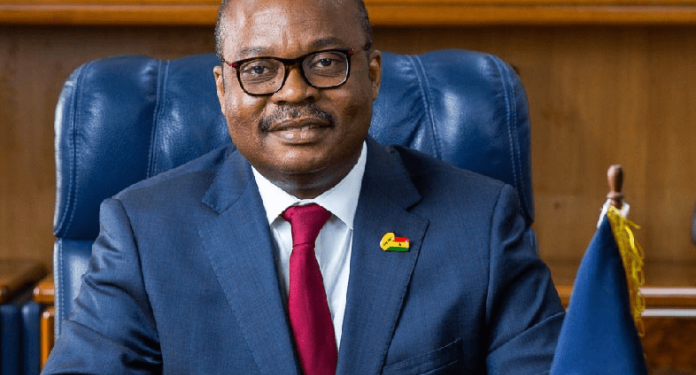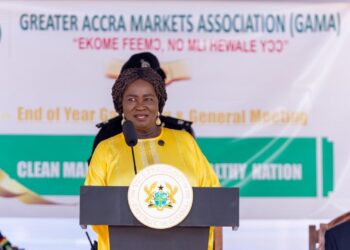The Governor of the Bank of Ghana (BoG), Dr. Ernest Addison, has assured the public that despite the Cedi depreciating by 6.8 percent in the first quarter of the year, the central bank possesses robust reserves to support the currency.
Dr. Addison stated that the gross international reserves had increased to $6.2 billion by the end of February 2024, providing ample support for the recovery of the local currency.
He attributed the Cedi’s depreciation in the first quarter to seasonal pressures, particularly those arising from the strengthening of the United States dollar in international markets and payments made by the BoG for the energy and corporate sectors.
“What we are seeing is a significant improvement; the currency is relatively stable in the first quarter of 2024, and we should expect that relative stability to continue on the basis of the fact that we have stronger buffers,” the Governor said.
“We have cleared a lot of energy sector arrears, although we received a $600 million second tranche of IMF money, we have over $444 million to settle energy sector arrears, but at the end of February, we are still reporting a strong reserve, so this should give some assurance that the Cedi is relatively stable,” Dr. Addison stated.
“These were compounded by delays and uncertainties associated with the second tranche of the cocoa loan inflow and World Bank’s disbursement of Budget Support,” he stated.
However, Dr. Addison expressed optimism, noting that the currency exhibited relative stability, thanks to the strengthened reserves. He emphasized that the BoG had cleared a significant portion of energy sector arrears and maintained strong reserves despite receiving a second tranche of IMF funds.
To mitigate the pressure on the Cedi, the central bank continued to see inflows from remittances, mining companies, and the Domestic Gold Purchase Programme. Additionally, the BoG remained active in the foreign exchange market through its weekly $20 million auction to Bulk Oil Distribution Companies (BDCs) and other interventions.
Regarding monetary policy, the Monetary Policy Committee (MPC) opted to maintain the benchmark interest rate at 29 percent, citing risks to inflation. Dr. Addison highlighted that the risks to inflation were slightly on the upside, necessitating close monitoring.
Furthermore, Dr. Addison provided updates on the national accounts, noting a surplus in the Balance of Payments for 2023 compared to a deficit in 2022. This surplus was mainly driven by lower income payments, reduced outflows from the capital account, and increased remittance inflows.
Overall, the capital and financial accounts also saw reduced outflows in 2023, with portfolio outflows significantly lower compared to the previous year. Government debt amortization likewise decreased due to the debt standstill announced in December 2022, contributing to improved national accounts and economic stability.

































